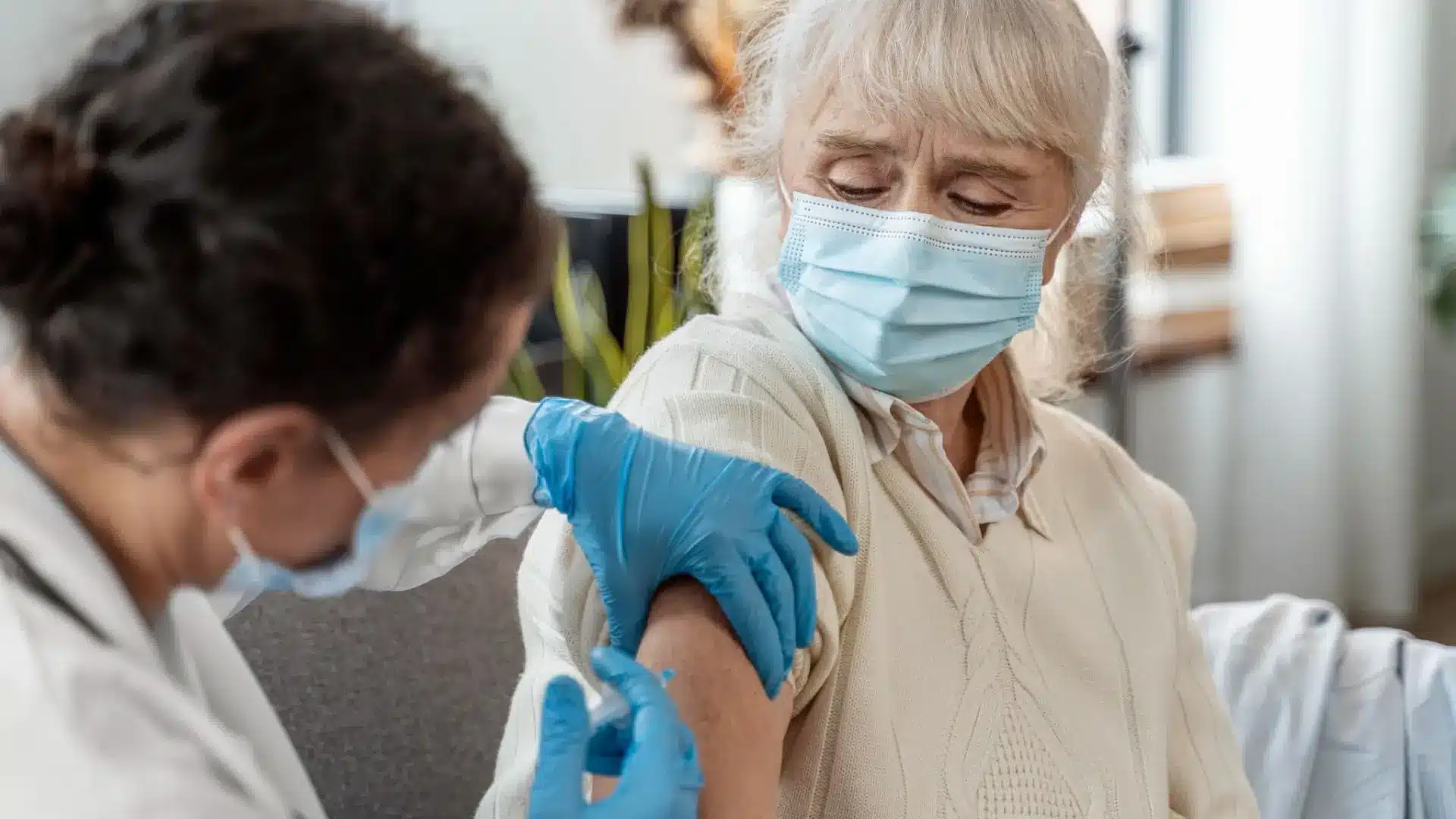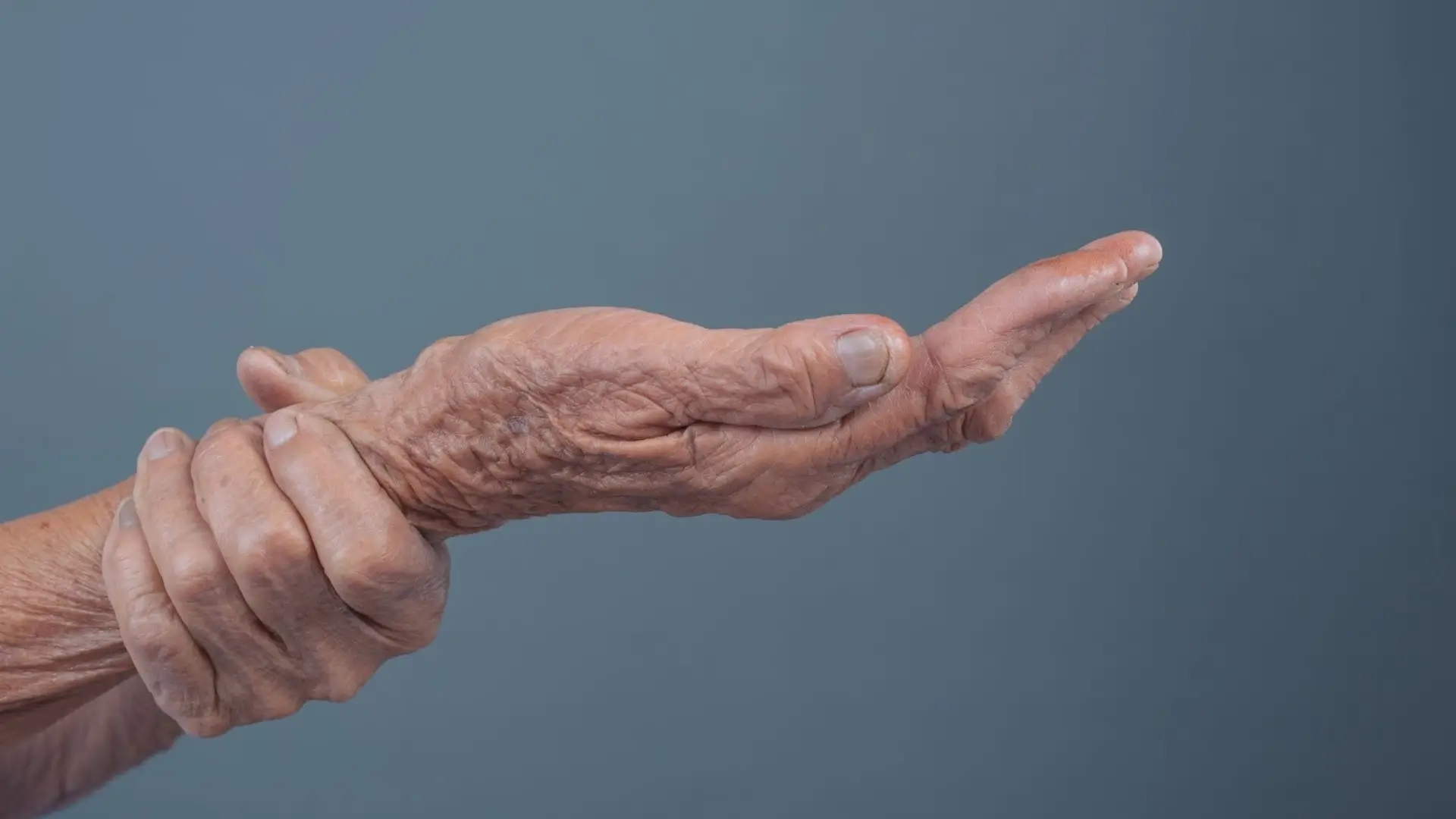
Evenity (romosozumab) is an advanced osteoporosis treatment proven to increase bone mineral density (BMD) and reduce fracture risk in postmenopausal women with osteoporosis. The medication is given through two injections once a month, totaling 210 mg, and must be administered by a qualified healthcare professional.
To gain the full benefits of treatment, correct dosing, timing, and preparation are essential. Each dose plays a role in supporting new bone formation while slowing bone breakdown, making consistency a key part of long-term success.
In this article, we’ll walk through how Evenity is administered, what patients can expect during their monthly visits, and the important steps healthcare providers take to ensure safe and effective treatment delivery.
Key Takeaways
- Evenity (romosozumab) is administered as two subcutaneous injections (105 mg each) given once monthly under the supervision of a healthcare professional.
- The treatment lasts for 12 months, during which proper handling, storage, and injection technique are essential to maintain safety and drug potency.
- Injection sites include the abdomen, thigh, or upper outer arm, with site rotation recommended to prevent irritation and ensure even absorption.
- Before starting therapy, patients must correct low calcium levels and maintain vitamin D supplementation to optimize bone formation and reduce side effects.
- Continuous cardiovascular monitoring is necessary during treatment due to Evenity’s boxed warning for potential heart attack and stroke risks.
About: Doctor Medica is your trusted supplier of top-quality dermal fillers, viscosupplements, and more for your medical practice. We offer genuine products from leading brands at the lowest prices available. If you’re looking to order Evenity online for your practice, contact Doctor Medica today.
Administration Method: Two Subcutaneous Injections (105 mg Each) Once Monthly

Evenity (romosozumab) is administered as two subcutaneous injections per month, each containing 105 mg for a total monthly dose of 210 mg. These injections are given consecutively during the same visit, typically by a qualified healthcare professional.
Administering both injections in one session ensures consistent drug absorption and maintains the proper dosing interval. Clinical supervision also allows providers to observe for any immediate reactions and confirm correct injection technique.
Evenity treatment follows a fixed 12-month schedule, which has been validated for safety and effectiveness in reducing fracture risk in postmenopausal women with osteoporosis. Continuing beyond one year is not recommended, as long-term data remain limited and the anabolic effect plateaus after this duration. Once the course is completed, patients transition to another osteoporosis therapy, often an antiresorptive agent such as alendronate or denosumab, to preserve the bone density gains achieved.
Injection Sites, Handling Precautions, and Proper Biologic Storage Requirements

Administering Evenity correctly is essential to ensure its full therapeutic benefit and minimize injection-related discomfort. Because it is a subcutaneous biologic, both the injection technique and storage conditions affect the drug’s stability and effectiveness.
Approved Injection Sites
Evenity is injected under the skin using prefilled syringes. The following areas are approved for administration:
- Abdomen: Inject at least 2 inches (5 cm) away from the navel for consistent absorption.
- Thighs: The front of the thigh provides a reliable site due to sufficient subcutaneous tissue and ease of access.
- Upper Outer Arm: This area should only be used when administered by a healthcare professional, as it can be difficult for patients to access or visualize correctly.
Rotating injection sites with each monthly dose helps prevent skin irritation, bruising, or lipodystrophy (changes in fat distribution under the skin). Avoid injecting into areas that are red, swollen, scarred, or irritated, as these can affect absorption or increase discomfort.
Handling Precautions
Proper handling protects Evenity’s biologic integrity and ensures patient safety.
- Allow the prefilled syringe to sit at room temperature for 30 minutes before injection. This reduces injection-site discomfort.
- Never warm the syringe using external heat sources such as microwaves, hot water, or direct sunlight, as this can damage the medication.
- Inspect the syringe before use. The solution should appear clear to slightly opalescent, colorless to light yellow, and free from particles.
- Do not use if the solution appears cloudy, discolored, or contains visible particles. Dispose of it properly according to your healthcare provider’s instructions.
- Use a new syringe for each injection. Never reuse or share syringes to avoid infection or contamination.
Storage Requirements
As a protein-based biologic therapy, Evenity is sensitive to temperature changes. Correct storage helps maintain its stability and potency:
- Store refrigerated at 2°C to 8°C (36°F to 46°F) in its original carton to protect from light.
- Do not freeze or shake, as this may damage the medication.
- If necessary, Evenity may be stored at room temperature (up to 25°C / 77°F) for up to 30 days. Once removed from the refrigerator, do not return it to cold storage.
Following these handling and storage steps ensures that each dose delivers its full therapeutic effect safely.
Pre-Treatment Checks: Calcium Correction and Vitamin D Supplementation
Before starting Evenity, physicians conduct a serum calcium assessment to rule out hypocalcemia (low calcium levels). Correct this condition before therapy begins, as insufficient calcium can increase the risk of muscle cramps, tingling sensations, or other side effects after injection.
Patients with severe renal impairment or those taking diuretics require additional monitoring because these conditions can predispose them to low calcium levels.
Adequate vitamin D supplementation is equally important for optimal results. Maintaining sufficient levels of both calcium and vitamin D supports Evenity’s anabolic activity and enhances bone mineralization.
Typical daily recommendations include:
- Calcium: 1,000–1,200 mg (diet and supplements combined)
- Vitamin D: 800–1,000 IU
This pre-treatment optimization helps maximize the drug’s efficacy while minimizing the risk of side effects.
Clinical Oversight, Cardiovascular Monitoring, and Patient Education During Therapy
Clinical supervision is an essential part of Evenity therapy due to its boxed cardiovascular warning. Do not initiate Evenity in patients who have had a heart attack or stroke within the past year, as studies have shown an increased risk of these events in some individuals.
Throughout the 12-month treatment course, healthcare professionals continuously assess cardiovascular health and review whether the benefits outweigh the risks for each patient. Clinicians monitor for new symptoms—such as chest pain, shortness of breath, or sudden dizziness—and discontinue treatment immediately if they occur.
Rather than requiring specific vital sign checks at every visit, physicians should regularly reassess each patient’s cardiovascular risk profile, especially for those with underlying heart conditions.
Healthcare professionals must also recognize the importance of patient education. Patients should understand that Evenity is a monoclonal antibody with both bone-building and antiresorptive properties and that its success depends on consistent dosing and follow-up care.
They can also explain what happens when you stop Evenity to reinforce the need for continued management after completing the 12-month course.
Conclusion
Proper Evenity administration is key to achieving the full benefits of treatment. Each monthly dose is two 105 mg subcutaneous injections that can help strengthen bones and reduce fracture risk in women with postmenopausal osteoporosis.
Before beginning therapy, patients should correct calcium deficiencies, maintain vitamin D intake, and undergo careful cardiovascular screening. Continuous oversight throughout treatment ensures safety and effectiveness.
When administered correctly, Evenity is a transformative osteoporosis therapy, helping patients build stronger bones, reduce fractures, and maintain long-term bone health with proper follow-up care.
FAQs
1. Who administers Evenity injections?
Only a qualified healthcare professional should give Evenity injections to ensure correct technique and monitoring for side effects.
2. Is it possible to self-administer Evenity injections?
Evenity is typically administered in a clinical setting. While some providers may arrange in-home administration, only do so under trained nursing supervision to ensure safety and accuracy.
3. What should I do if I miss an Evenity dose?
If you miss your monthly dose, schedule the next injection as soon as possible and resume the regular monthly schedule afterward, ensuring at least 30 days between doses.
4. How long should Evenity treatment continue?
The treatment only spans over 12 months. Continuing beyond that has not been fully studied. After completing the course, patients transition to maintenance therapy such as denosumab or bisphosphonates to preserve bone density.
References
Paik J, Scott LJ. Romosozumab: A Review in Postmenopausal Osteoporosis. Drugs Aging. 2020;37(11):845-855. doi:10.1007/s40266-020-00793-8
Bandeira L, Lewiecki EM, Bilezikian JP. Romosozumab for the treatment of osteoporosis. Expert Opin Biol Ther. 2017;17(2):255-263. doi:10.1080/14712598.2017.1280455
Related Articles
Joanna Carr
Intraline Dermal Fillers – Everything You Need to Know
Learn all about Intraline dermal fillers, including their ingredients, applications, safety profile, and how they compare to other aesthetic injectabl...
Joanna Carr
Plinest Under Eye – Reduce Dark Circles
Plinest under eye treatment helps reduce dark circles by stimulating skin regeneration and hydration. Learn how this polynucleotide-based injectable r...
Joanna Carr
Depo Provera And Periods – Do They Stop Completely?
Depo Provera can significantly alter menstrual cycles, often leading to reduced bleeding or complete cessation of periods in some women.


